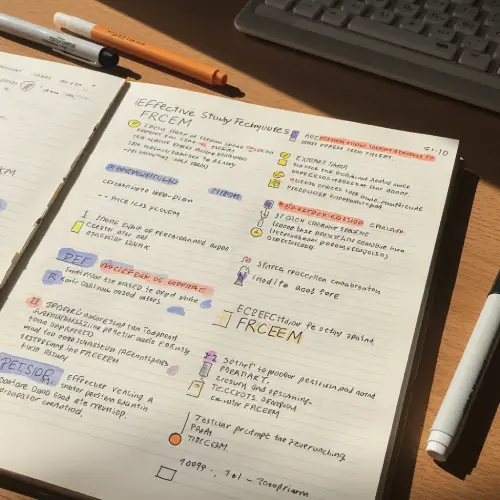Emergency medicine is one of the most fast-paced, high-pressure specialties in healthcare, requiring professionals to think quickly, act decisively, and constantly adapt to evolving medical situations. In this ever-changing landscape, having an authoritative body that sets and upholds standards is crucial. The Royal College of Emergency Medicine (RCEM) plays an essential role in shaping the field, providing guidance, supporting healthcare professionals, and improving the quality of care for patients.
RCEM’s efforts are not just about advancing the knowledge and skills of emergency care doctors; it is also about elevating the entire discipline of emergency medicine to meet the demands of modern healthcare. Here’s how RCEM contributes to advancing both emergency medicine standards and practice:
1. Setting Clinical Guidelines and Best Practices
One of the primary ways RCEM contributes to advancing emergency medicine is by developing and disseminating clinical guidelines that set clear standards for care across the UK. These guidelines ensure that all emergency departments (EDs) follow evidence-based, consistent practices when treating patients, which in turn improves patient outcomes and streamlines care delivery.
For example, RCEM produces guidelines for managing a wide range of conditions encountered in emergency settings, such as trauma, stroke, heart attacks, and pediatric emergencies. By ensuring that these guidelines are constantly updated to reflect the latest medical evidence, RCEM ensures that practitioners are always working with the most current and effective information available.
2. Enhancing Education and Training
RCEM’s dedication to education and professional development helps foster a culture of continuous learning among emergency care providers. Through its diverse range of training programs, RCEM ensures that doctors at all stages of their careers—whether they’re medical students, junior doctors, or consultants—have access to the tools they need to excel.
The RCEM’s flagship educational initiatives, such as the FRCEM exams and continuing professional development (CPD) programs, play a pivotal role in refining practitioners’ skills and keeping them up to date with the latest advancements in emergency medicine. These training programs not only ensure competency but also enhance overall patient care by fostering a skilled and knowledgeable workforce.
Moreover, RCEM offers specialized courses that address key areas of emergency care, such as trauma management, pediatric emergencies, and critical care. This targeted education helps healthcare providers hone in on areas where they may need further expertise, improving the level of care across different specialties in emergency medicine.
3. Advocating for Emergency Medicine Professionals
Emergency medicine doctors face unique challenges—long shifts, intense workloads, and often, the emotional and physical toll of managing high-stress situations. RCEM plays a vital role in advocating for the well-being of emergency care professionals. It works to ensure that their voices are heard in healthcare policy discussions and supports initiatives that address the needs and challenges of emergency medicine doctors.
RCEM actively engages with government agencies, health authorities, and other organizations to secure better working conditions, fair compensation, and more support for healthcare professionals in the emergency sector. This advocacy is essential to maintain the well-being of doctors and staff, which, in turn, ensures high-quality patient care.
4. Promoting Research and Innovation
Research is a cornerstone of any medical discipline, and emergency medicine is no exception. RCEM actively promotes and supports research that focuses on improving emergency care practices. By collaborating with academic institutions, hospitals, and research centers, RCEM fosters innovation in the field.
Research initiatives often lead to new treatment methods, faster diagnostic tools, and better patient care strategies. Additionally, RCEM encourages its members to engage in research, contributing to a culture of evidence-based practice and driving forward new approaches to healthcare challenges in emergency settings. Whether it’s research on patient safety, emergency department efficiency, or innovative treatment protocols, RCEM helps to propel the field into new frontiers.
5. Shaping National Healthcare Policies
RCEM plays a pivotal role in shaping national healthcare policies related to emergency medicine. By participating in policy discussions, RCEM helps ensure that emergency departments (EDs) across the country receive the resources and support they need to operate effectively.
This includes working with policymakers to secure funding for emergency services, improve patient flow in EDs, and address broader challenges such as overcrowding. RCEM also helps to raise awareness of the vital role that emergency medicine plays in the overall healthcare system, ensuring that emergency care continues to be prioritized in national healthcare agendas.
6. Ensuring Public Safety and Effective Care
At the heart of RCEM’s work is its commitment to public safety and effective care. By setting standards, providing education, advocating for healthcare professionals, and promoting research, RCEM helps to create an environment where patients receive the highest standard of care when they arrive at an emergency department. The College’s influence extends to ensuring that all aspects of emergency medicine are not only standardized but also continuously evolving to meet the needs of a growing and diverse population.
Conclusion
The Royal College of Emergency Medicine (RCEM) is integral to the development and advancement of emergency medicine standards and practices in the UK. Through its work in setting clinical guidelines, providing education and training, advocating for its members, promoting research, and shaping national policies, RCEM ensures that emergency medicine is always evolving in response to the changing needs of both healthcare professionals and the communities they serve.
As the field of emergency medicine continues to face new challenges, from rising patient numbers to advancements in medical technology, RCEM will remain at the forefront of ensuring that the highest standards of care are maintained and that emergency medicine professionals are supported in their vital roles.




